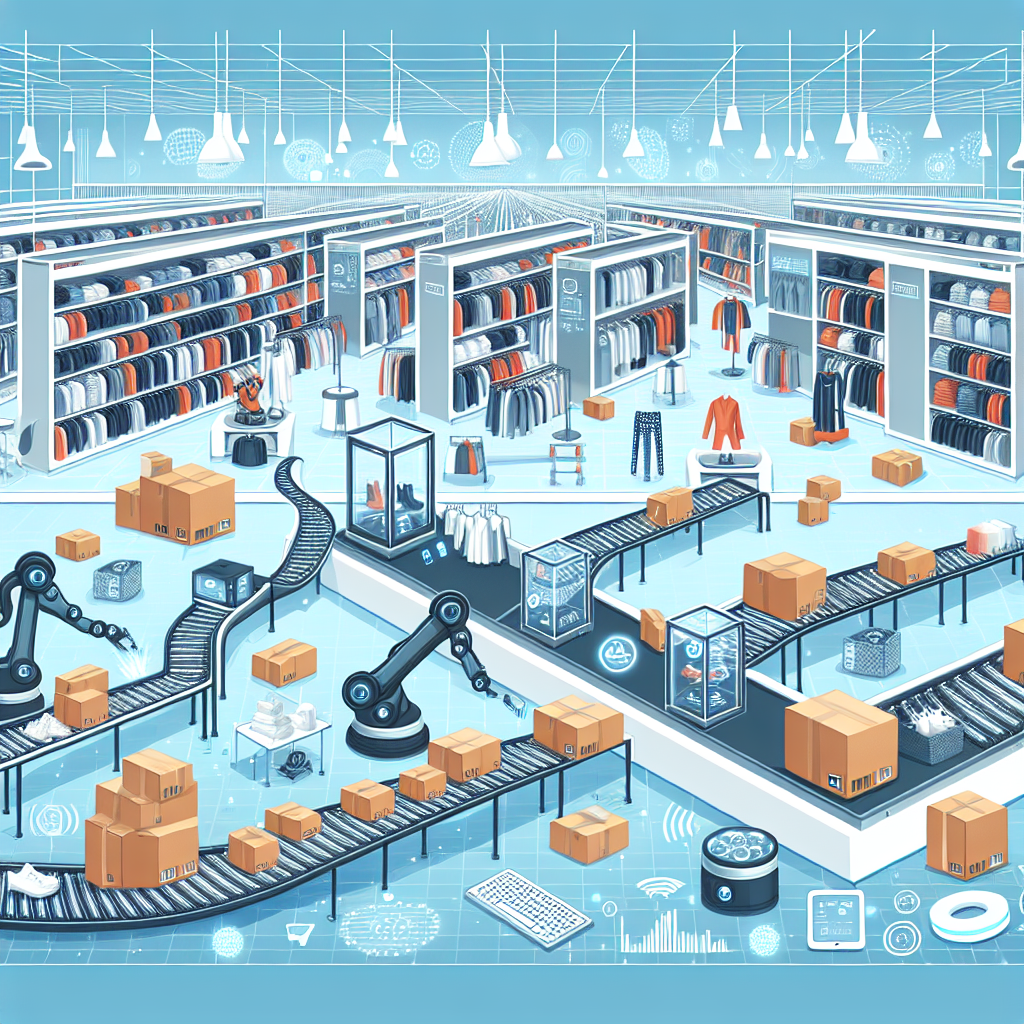The Impact of AI on Fashion Supply Chain Efficiency
The fashion industry is one of the most dynamic and fast-paced industries in the world. With trends constantly changing and consumer demands evolving, it is crucial for fashion companies to stay ahead of the curve and streamline their operations to meet customer expectations. One of the key areas where technology is revolutionizing the fashion industry is in supply chain management, and more specifically, the integration of Artificial Intelligence (AI) into the supply chain process.
AI is transforming the way fashion companies manage their supply chains by providing advanced analytics, predictive modeling, and automation capabilities. By harnessing the power of AI, fashion companies can optimize their supply chain operations, reduce costs, improve efficiency, and ultimately deliver a better customer experience. In this article, we will explore the impact of AI on fashion supply chain efficiency and how it is shaping the future of the industry.
1. Improved Forecasting and Planning
One of the key benefits of AI in fashion supply chain management is improved forecasting and planning. AI algorithms can analyze historical sales data, consumer trends, and other relevant factors to predict future demand accurately. By accurately forecasting demand, fashion companies can optimize their production schedules, reduce excess inventory, and minimize stockouts. This not only helps to streamline operations but also improves customer satisfaction by ensuring that the right products are available at the right time.
2. Enhanced Inventory Management
AI-powered inventory management systems can help fashion companies optimize their inventory levels and reduce carrying costs. By using machine learning algorithms to analyze real-time data, companies can identify trends, forecast demand, and make data-driven decisions about inventory levels. This not only reduces the risk of overstocking or understocking but also improves the overall efficiency of the supply chain.
3. Supply Chain Visibility and Transparency
AI technology enables fashion companies to gain real-time visibility into their supply chain operations. By integrating AI-powered analytics tools with their supply chain management systems, companies can track the movement of goods, monitor production processes, and identify potential bottlenecks or disruptions in the supply chain. This increased visibility and transparency enable companies to make proactive decisions, optimize workflows, and respond quickly to changing market conditions.
4. Streamlined Production Processes
AI can also streamline production processes in the fashion industry by automating repetitive tasks, optimizing workflows, and improving collaboration between different departments. By using AI-powered tools such as robotic process automation (RPA), companies can automate tasks such as order processing, inventory management, and production planning, freeing up employees to focus on more strategic activities. This not only improves efficiency but also reduces the risk of errors and delays in the production process.
5. Personalized Customer Experience
AI technology enables fashion companies to personalize the customer experience by analyzing customer data, preferences, and behavior patterns. By leveraging AI-powered tools such as recommendation engines, companies can deliver personalized product recommendations, targeted marketing campaigns, and tailored promotions to individual customers. This not only enhances customer satisfaction but also drives sales and improves customer loyalty.
6. Sustainability and Ethical Sourcing
AI can also help fashion companies improve their sustainability and ethical sourcing practices. By using AI-powered analytics tools to track and monitor suppliers, companies can ensure compliance with ethical sourcing standards, reduce environmental impact, and promote sustainable practices throughout the supply chain. This not only helps to build a positive brand image but also aligns with the growing consumer demand for sustainable and ethical fashion.
Frequently Asked Questions (FAQs)
Q: How can AI help fashion companies improve their supply chain efficiency?
A: AI can help fashion companies improve their supply chain efficiency by providing advanced analytics, predictive modeling, and automation capabilities. By analyzing data, forecasting demand, optimizing inventory levels, and streamlining production processes, AI can help companies reduce costs, improve efficiency, and deliver a better customer experience.
Q: What are some of the key benefits of using AI in fashion supply chain management?
A: Some of the key benefits of using AI in fashion supply chain management include improved forecasting and planning, enhanced inventory management, increased visibility and transparency, streamlined production processes, personalized customer experience, and improved sustainability and ethical sourcing practices.
Q: How can fashion companies integrate AI into their supply chain operations?
A: Fashion companies can integrate AI into their supply chain operations by investing in AI-powered tools and technologies, partnering with AI vendors and service providers, and training their employees to use AI effectively. By leveraging AI technology, companies can optimize their supply chain operations, reduce costs, and improve efficiency.
Q: What are some of the challenges of implementing AI in fashion supply chain management?
A: Some of the challenges of implementing AI in fashion supply chain management include data privacy and security concerns, resistance to change from employees, lack of technical expertise, and high upfront costs. However, with proper planning, training, and investment, fashion companies can overcome these challenges and reap the benefits of AI technology.
In conclusion, AI is transforming the fashion industry by revolutionizing supply chain management and improving efficiency across the board. By harnessing the power of AI, fashion companies can optimize their operations, reduce costs, and deliver a better customer experience. As technology continues to evolve, AI will play an increasingly important role in shaping the future of the fashion industry and driving innovation in supply chain management.

